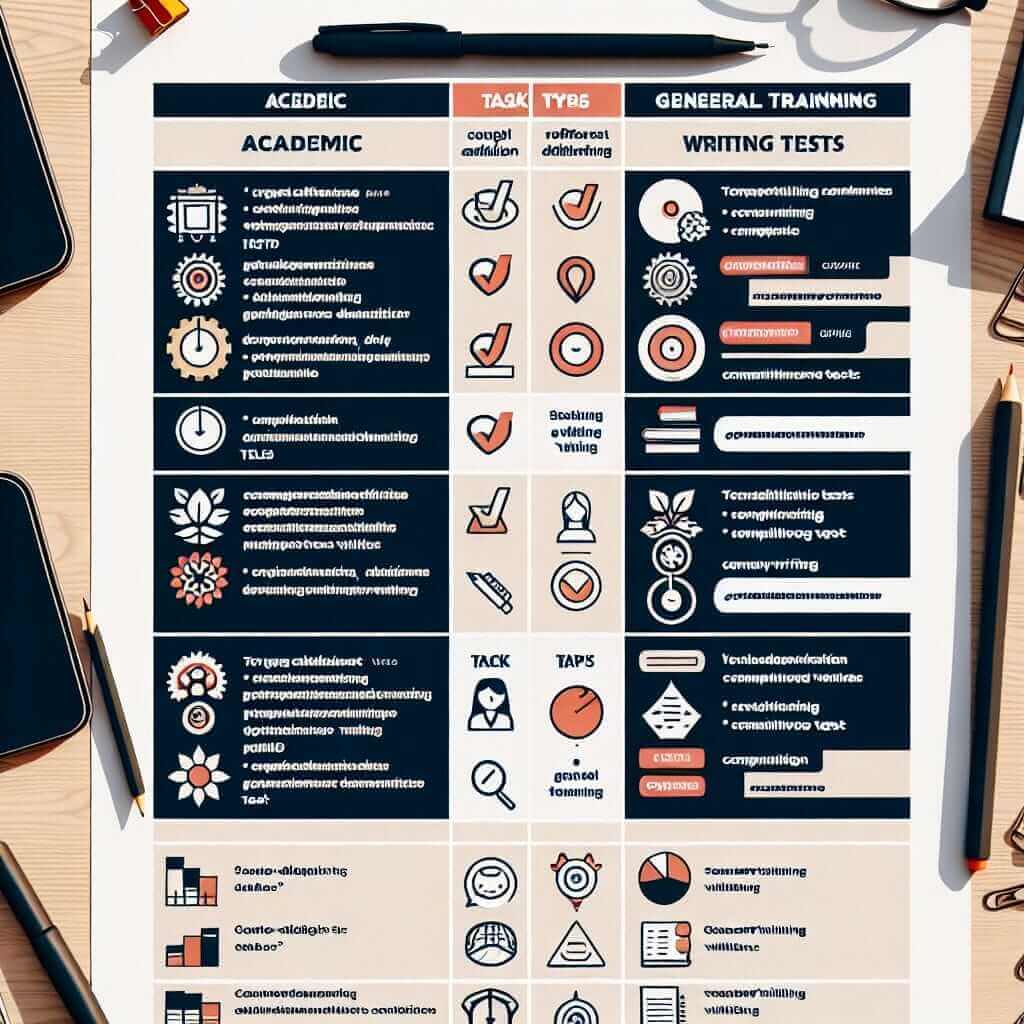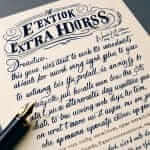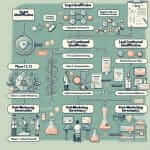As an IELTS instructor with over two decades of experience, I understand the importance of a strong writing score for achieving your target band. Many students often ask me, “What is the best book for IELTS Writing?” While there isn’t one magic book that guarantees success, some resources can significantly enhance your writing skills.
Understanding Your Needs
Before diving into book recommendations, let’s analyze why finding the right IELTS Writing book can be challenging:
1. Individual Learning Styles
Every student learns differently. Some thrive on structured grammar explanations, while others prefer model answers and vocabulary drills. Identifying your learning style is crucial for selecting a book that resonates with you.
2. Exam Focus: Academic vs. General Training
The IELTS Writing test differs for Academic and General Training modules. Ensure the book you choose caters specifically to your chosen module.
 IELTS Academic vs. General Training
IELTS Academic vs. General Training
Key Features of a Good IELTS Writing Book
A good IELTS Writing book should encompass the following:
1. Comprehensive Content:
- Clear and concise grammar explanations: Look for books that break down complex grammatical structures, common errors, and provide ample practice exercises.
- Extensive vocabulary lists: A rich vocabulary is essential for high band scores. Opt for books that offer topic-specific vocabulary, collocations, and idiomatic expressions.
- Varied task types: Ensure the book covers all task types (Task 1 and Task 2) for both Academic and General Training modules.
2. Authentic Practice Materials:
- Sample answers with examiner comments: Analyzing high-scoring model answers alongside examiner feedback helps you understand the assessment criteria and areas for improvement.
- Practice tests: Regularly practicing under timed conditions familiarizes you with the exam format and helps you manage your time effectively.
3. Engaging and Effective Learning:
- Clear explanations and examples: The book should present information in a straightforward manner, using relatable examples to illustrate key concepts.
- Interactive exercises: Look for books that offer interactive activities, quizzes, and self-assessment tools to reinforce learning and track progress.
Recommended IELTS Writing Books
Based on the criteria above, here are some highly regarded IELTS Writing books:
For Academic Writing:
- “The Official Cambridge Guide to IELTS”: This book provides a comprehensive overview of the IELTS exam, including detailed sections on Academic Writing. It includes authentic practice tests, sample answers, and examiner feedback.
- “Improve your IELTS Writing Skills”: This book focuses specifically on Academic Writing, offering clear explanations, vocabulary building exercises, and practice tests.
For General Training Writing:
- “Cambridge IELTS 17 General Training Student’s Book with Answers”: This book offers authentic practice tests for the General Training module, along with sample answers and examiner feedback for the Writing section.
- “Barron’s IELTS Superpack”: This comprehensive resource includes practice materials for all sections of the IELTS, with a dedicated book for Writing that covers both Academic and General Training modules.
Tips for Maximizing Your Book’s Potential
- Don’t just read passively: Actively engage with the material by taking notes, highlighting key points, and completing all exercises.
- Analyze model answers critically: Understand why certain answers score highly and identify areas where you can improve your own writing.
- Practice regularly: Consistent practice is key for improving your writing skills. Aim to write at least one essay or report every other day.
- Seek feedback: Have a teacher or tutor review your writing and provide constructive criticism.
Conclusion
Finding the best book for IELTS Writing depends on your individual needs and learning style. By understanding the key features of a good IELTS Writing book and exploring the recommended resources, you can choose a book that effectively guides you towards achieving your desired band score. Remember, consistent practice, critical analysis, and expert feedback are crucial for maximizing your writing potential and excelling in the IELTS exam.


